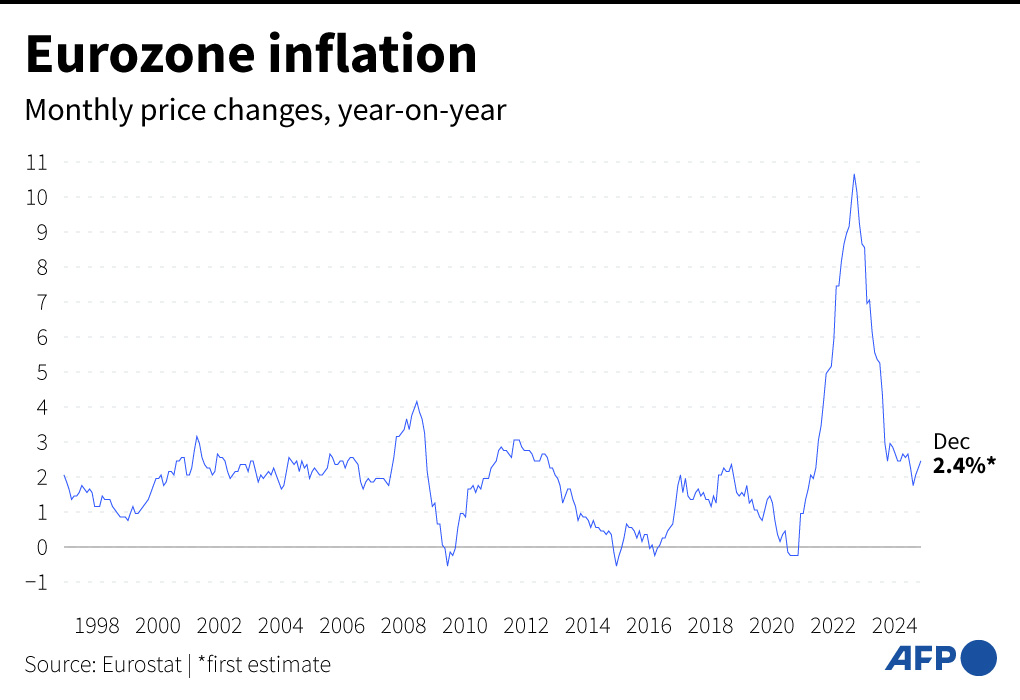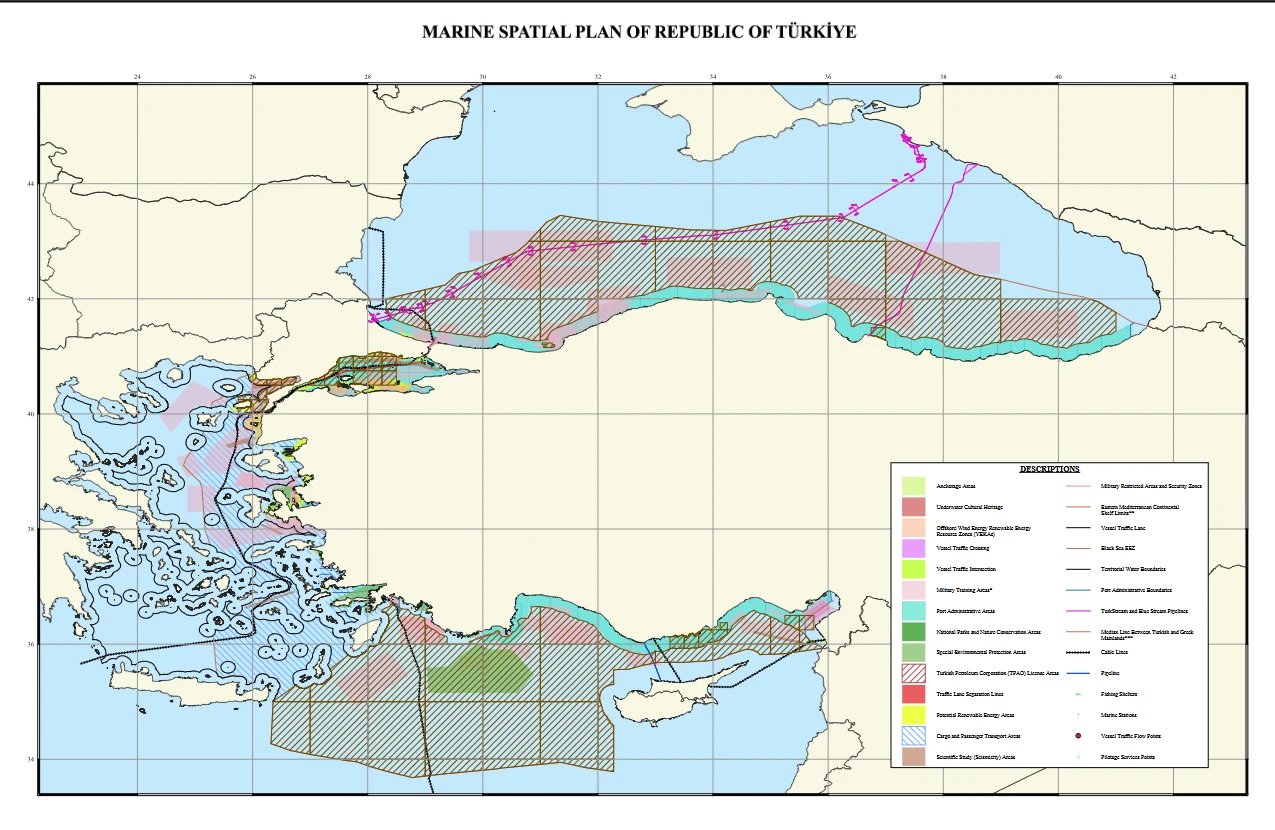Eurozone inflation edges up due to increasing energy prices
 File photo shows shoppers browse fresh produce at a vibrant supermarket. (AFP Photo)
File photo shows shoppers browse fresh produce at a vibrant supermarket. (AFP Photo)
Eurozone’s inflation slightly rose in December, climbing 2.4% in December driven by hiking energy prices, Eurostat reported on Tuesday.
Consumer prices picked up to 2.4% last month, as predicted by analysts for Bloomberg and financial data firm FactSet, and up from 2.2% in November. Meanwhile, core inflation—which strips out volatile energy, food, alcohol, and tobacco prices and is a key indicator for the ECB—was stable at 2.7%.

December’s rise comes after inflation in the 20-nation single currency area fell to a three-year low of 1.7% in September.
Consumer prices have since been inching back up to above the ECB’s target of 2%; the exact figure hit in October.
The higher reading is because of energy prices rising by 0.1% in December, a significant uptick after a fall of 2% in November. Meanwhile, food prices remained stable at 2.7% last month.
Services inflation rose by 4% last month, up slightly from 3.9% in November, which experts said would likely force the ECB to cut rates at a slower pace.
“The continued stickiness of eurozone service inflation means that the ECB is likely to keep cutting interest rates only slowly even as the economic outlook remains poor,” said Jack Allen-Reynolds, deputy chief eurozone economist at Capital Economics.
Inflation on target for new interest cuts
The ECB is expected to cut interest rates at the next monetary policy meeting on Jan. 30, but it will need to tread carefully with price pressures still present in the eurozone.
Inflation in the eurozone has been brought firmly back down from the highs of more than 10% reached in late 2022 following Russia’s invasion of Ukraine.
With weak economic growth, the ECB had turned its attention last year to cutting rates to combat the signs of weakness in the European economy. In December, the ECB reduced its key deposit rate by a quarter point to 3%, its third cut in a row and fourth since June, when it kicked off its current easing cycle.
ECB chief Christine Lagarde insisted in a New Year’s message that the bank would focus on further reining in inflation this year. “We have made significant progress in 2024 in bringing down inflation and hopefully 2025 is the year when we are on target as expected and as planned in our strategy,” Lagarde said on Jan. 1 in a video on social media platform X. “Of course, we will continue our efforts to ensure that inflation stabilizes sustainably at that 2% medium-term target,” she added.
Inflation rose in the eurozone’s two biggest economies, Germany and France, to reach 2.8% and 1.8%, respectively, in December. Eurostat data also showed Ireland had the lowest rate of inflation in December at 1%.
Other official data published on Tuesday showed unemployment in the eurozone stood at 6.3% in November.



